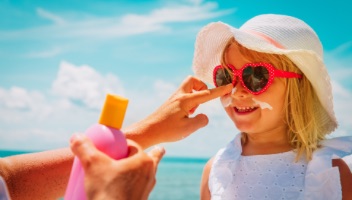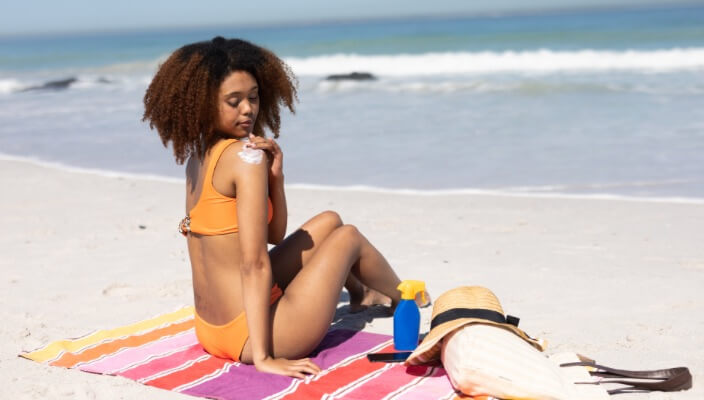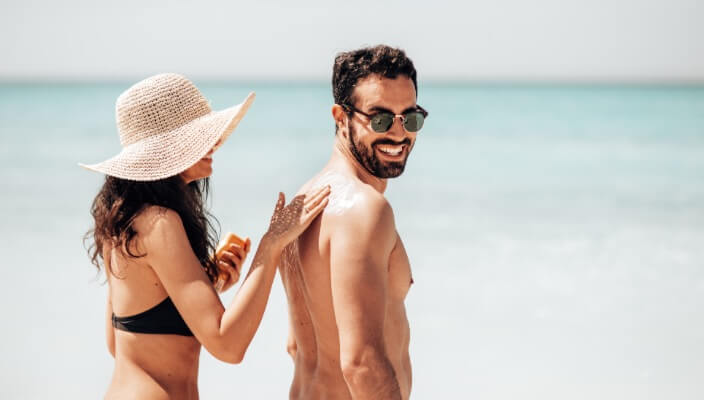How Effective Is Your Sunscreen?
From SPF to Water Resistance, Your Ultimate Guide to Protection Against Harmful UV Rays
 Summer is here. The days are longer, the sun is stronger, and we are outdoors more.
Summer is here. The days are longer, the sun is stronger, and we are outdoors more.Our dermatologists remind patients that “It’s important to remember that there’s no such thing as 'light base, or safe tan.' An individual’s skin darkens or tans as a result of protecting itself from harmful UV rays. A tan is our skin’s way of telling us it is being damaged.”
Skin cancer is the most common form of cancer found globally and having five or more sunburns in your life doubles your risk for melanoma.1 It’s key to remember that no sunscreen is the same, even if it is a high SPF.
“It’s important to remember that there’s no such thing as “light, base, or safe tan”. An individual’s skin darkens or tans as result of protecting itself from harmful UV rays. A tan is our skin’s way of telling us it is being damaged.” - Dr. Peter Jajou
What should you know when you choose your sunscreen?
Follow these guidelines when choosing your sunscreen to maximize your sun protection:
Choose Broad-Spectrum
Choose SPF of 30 or More
- SPF 15 filters out 93% of UVB rays
- SPF 30 filters out 97% of UVB rays
- SPF 50 filters 98% of UVB rays
Sweat & Water-Resistance
Protect Your Skin
Understanding the effectiveness of your sunscreen is crucial for safeguarding your skin from the harmful effects of the sun. To master the art of proper sunscreen application, review the video below and explore our range of high-quality sunscreens by visiting our online store. Take charge of your skin health and embrace sun-safe practices today.
How To Correctly Apply Sunscreen

Get Your Favorite Medical-Grade Skincare
Visit our online store to get all your favorite medical-grade skincare. We offer everything from cleansers and moisturizers to sunscreens recommended by our dermatologists. Get yours today!
Related Blog Posts

- Skin Cancer
- Sun Safety
Summer safety is more than just putting on sunscreen; many other factors to consider when keeping yourself and your children safe from damage and potential skin cancer.

- Skin Cancer
- Sun Safety
- Skin Care
If you’re unsure of how to effectively apply sunscreen, we’re here to help. Read our guide on when to apply it, how much sunscreen you should wear, how often to reapply, and more.
Read More
- General Dermatology
- Sun Safety
While the sun brings happiness, it poses a significant threat to our skin.
Read More
